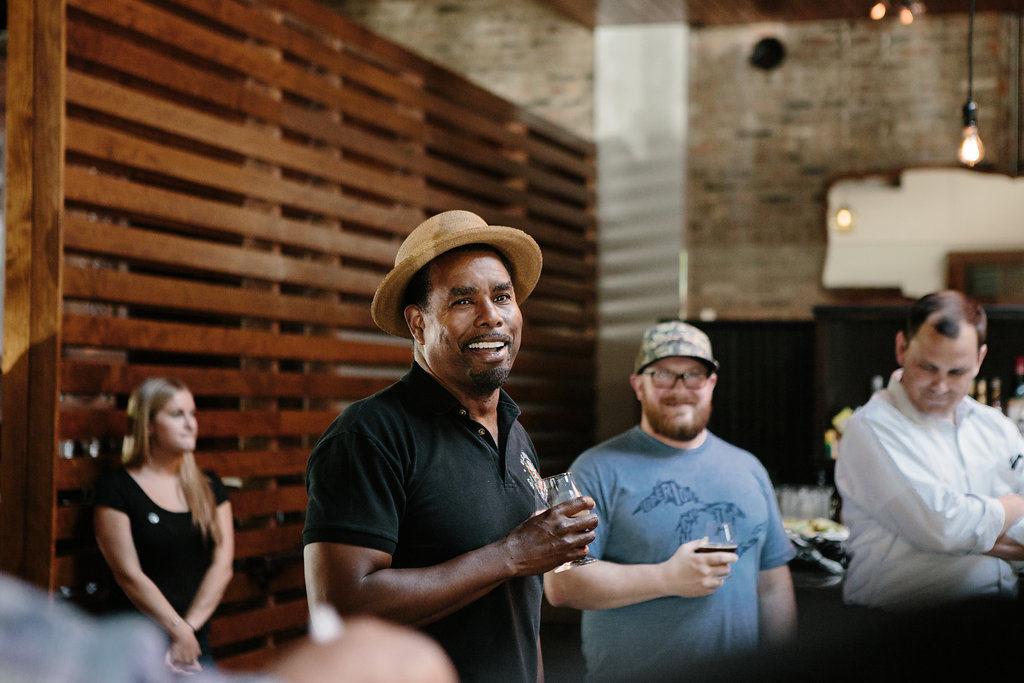During our lengthy interview with Brooklyn Brewery brewmaster Garrett Oliver earlier this year, we covered a wide range of topics. We’ve been rolling out sections of that interview on a nearly monthly basis, like a serialized story. In this age of hybrid beer styles, mash-ups and all kinds of IPAs, one of his comments really struck us.
We asked, “The American craft beer industry is rather mature, but looking back over the years, do you see any inflection points where the BA has made some mistakes and you wish they had done things differently?”
Oliver answered with the following:
“I think that we certainly blurred a lot of lines that used to be clear. The IPA is a great example of that. Ten years ago you could go to a neophyte and explain to them really clearly what an IPA was–where it came from, what it’s flavor profile is, what it’s history was. That’s the basis of the idea of beer styles. Once you’re making something which looks like a banana smoothie, has relatively low bitterness and has lactose–but also hop aroma so that you call it ‘milkshake IPA’–it bears no resemblance or association with an IPA. This means that your nomenclature is ruined, and once that happens, you have nothing. You have no culture. I think that’s the thing that a lot of newer craft brewers don’t understand. Words are powerful. They carry meaning. If your words have no meaning, you have no power. I want to be clear about this; I’m not trying to keep brewers from being creative. If you want to make a beer that tastes like a strawberry milkshake, you go right ahead and do it. If it tastes really good, I’ll even drink it. But calling it an IPA is disrespectful to your profession and the history of your profession. It also ruins your own future. A lot of people are short-sighted; they say, “Well, anything with the name ‘IPA’ on it sells.” But when it turns out that none of your style names mean anything at all, and when you say ‘pilsner’, but it could be cloudy or black, or have bananas, then pilsner will mean nothing and you won’t be able to say anything to anyone. That is the difficulty for a lot of the wine industry. A lot of people are unfamiliar with the terms and that creates a barrier for the consumer. That’s a barrier we don’t want. We established some sense with beer styles. I hope that brewers will not so quickly give that up. And when they create a new beer style, they can give it a brand-new name, as we did with our hoppenweizen (a hoppier than usual weizen). It would have been easy to have called it a Weizen IPA, and everyone would have understood, and it would have sold faster, but I was unwilling to do that.”




